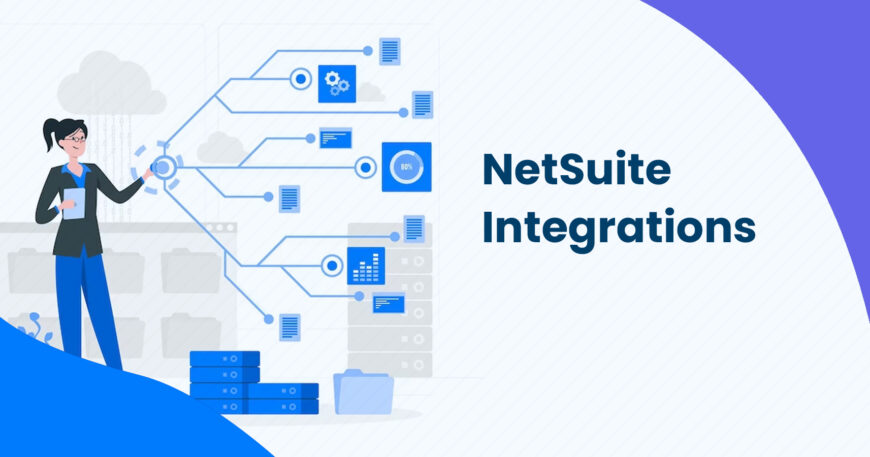We all know how crucial it is to have seamless data flow and streamlined processes for success. And that’s where NetSuite, the excellent cloud-based ERP platform, comes in! It’s a powerful solution for managing various aspects of business operations. But as managers overseeing integration projects, we need to grasp the nitty-gritty of capacity planning and cost assessment to ensure smooth implementation.
So, in this article, let’s dive into NetSuite integrations and explore the ins and outs of planning. We’ll cover the importance of integrations, how to identify needs and objectives, figure out capacity planning, estimate costs, and even manage risks. By understanding these key aspects, we can make informed decisions to rock those integrations and foster serious business growth!
Table of Contents
I. Understanding NetSuite Integrations
- Types of Integrations (Internal, External, Third-party)
II. The Role of Integrations in Streamlining Business Processes
- Identifying Integration Needs and Objectives
III. Capacity Planning for NetSuite Integrations
- Determining Integration Costs
IV. In-house vs. Outsourced Integrations
- Managing Risks in Integration Projects
- Selecting Integration Partners and Vendors
- Integration Testing and Quality Assurance
I. Understanding NetSuite Integrations
Alright, first things first – what exactly are NetSuite Integrations ? They involve linking the NetSuite ERP system with other internal, external, or third-party applications to make data exchange and processing smooth as butter.
-
Types of Integrations (Internal, External, Third-party)
We need to know a few flavors of integrations: internal, external, and third-party. Internal integrations connect different modules within NetSuite ecommerce solutions, while external integrations link NetSuite with other in-house systems. And, of course, third-party integrations involve getting NetSuite to play nice with external applications or services.
II. The Role of Integrations in Streamlining Business Processes
You know what’s excellent about integrations? They enhance data flow and communication between departments, breaking down those pesky data silos. Plus, they automate workflows and tasks, freeing up our excellent team to focus on higher-value activities!
-
Identifying Integration Needs and Objectives
Alright, let’s get into the nitty-gritty of planning. First, we need to assess our existing business systems and processes. What can we improve? Where do we need the magic touch of Netsuite integrations? Once we’ve figured that out, we can set clear goals and objectives for each Netsuite ecommerce integration project, measuring success with key performance indicators (KPIs)!
III. Capacity Planning for NetSuite Integrations
Now, let’s talk about capacity planning. First, we need to evaluate our in-house technical expertise. Do we have the skills, or do we need to provide some training? Next, we allocate the right personnel and resources to each Netsuite ecommerce integration project based on complexity and urgency. A detailed project timeline will keep things running smoothly.
-
Determining Integration Costs
Ah, the dollars and cents. We must estimate the costs involved, including development, implementation, and third-party licensing fees. But hey, remember to calculate the return on investment (ROI) too! Integrations can save us money in the long run through increased efficiency and productivity.
IV. In-house vs. Outsourced Integrations
Now, here’s a big question – do we handle Netsuite ecommerce integrations in-house or outsource them? Both have their perks. In-house gives us control and customization, while outsourcing brings specialized expertise and cost-effectiveness. Finding the right balance might be the way to go!
-
Managing Risks in Integration Projects
We must remember risks and challenges. Security and privacy concerns are always a top priority. Addressing potential compatibility issues between different systems is crucial too. But don’t worry, we’ll develop contingency plans and keep open communication to tackle anything that comes our way!
-
Selecting Integration Partners and Vendors
When looking for integration partners, we must consider experience, track record, and expertise in NetSuite integrations. And, of course, comparing pricing and contracts is a must to ensure transparency and make the best choice!
-
Integration Testing and Quality Assurance
Last but not least, we’ve got to test everything thoroughly. Functional testing and bug identification are essential, and getting end-users involved in user acceptance testing (UAT) ensures a seamless experience. Data migration and validation will keep everything squeaky clean after integration.
Conclusion
So, there you have it! Efficient planning for NetSuite integrations is the key to unlocking the true potential of our ERP system. By understanding the importance of integrations, defining objectives, assessing capacity, estimating costs, and managing risks, we’ll rock those integration projects and take our business to the next level!
Let’s invest some time and effort in comprehensive Netsuite ecommerce integration planning, and we’ll be unstoppable on our journey toward business growth and success. Keep that data flowing and those processes streamlined! You’ve got this!
Now, if you are looking for the best Netsuite Suitecommerce developers, Vserve is here for you. Unlock ecommerce success with Vserve’s Netsuite SuiteCommerce Advanced (SCA) store development service.
Our skilled SuiteCommerce developers integrate seamless NetSuite solutions, creating powerful web stores. Maximize profitability and drive rapid growth with our scalable infrastructure. Trust Vserve for a top-notch suitecommerce experience and elevate your NetSuite ecommerce business.





